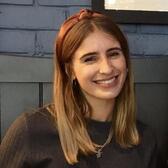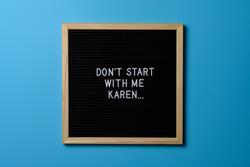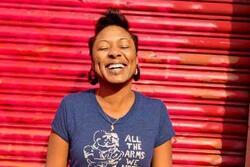Black and Jewish: A Conversation with Nadine Batchelor-Hunt
Nadine Batchelor-Hunt is a UK-based writer and journalist who has been vocal about the importance of embracing her identity as a Jewish woman of color, and of tackling antisemitism and racism respectively within Black and Jewish communities. Nadine recently came under fire on Twitter after calling out British rapper Wiley (Richard Kylea Cowie Jr.) for a series of antisemitic tweets that caused him to be dropped by his manager. During his antisemitic tirade, Wiley tweeted that Nadine was “not really Black.” Some online abusers went on to undermine Nadine’s Jewishness as well as her Blackness, while others simultaneously accused her of being a white supremacist and a Holocaust denier. This episode demonstrated the extent to which racial and religious oppression are still discussed as separate issues, and the extent to which the identities Black and Jewish are treated as mutually exclusive. It also revealed how racist and antisemitic stereotyping has been adopted by Black and Jewish communities to other those who belong to both.
I spoke to Nadine about the complexities of having an intersectional identity, the dangers of internalizing offensive tropes, and how white/non-Jewish allyship can become more inclusive.
How did you feel in the aftermath of Wiley’s comments, and in what ways do they demonstrate the ignorance of many regarding intersectionality?
During Wiley's antisemitic tirade on Twitter, I responded frequently to his tweets trying to diffuse a toxic atmosphere that was developing where Black people and Jewish people were being pitted against each other; I felt that as someone who straddled both communities, I had an important role to play in stopping the situation escalating. The toxicity of the situation was most clearly demonstrated when Wiley suggested that Jewish people didn't really care about Black people. When I corrected him on this, he retorted by telling me I wasn't really Black. This is a prime example of my identities being pitted against each other—I felt I was being forced to choose: You can be Black, or you can be Jewish, but not both.
Beyond this exchange, have there been specific times in which you've been made to feel particularly conscious of your ethnic and/or racial heritage in the workplace, in social spaces, within education, or elsewhere?
Yes. At university, I often felt acutely aware of my ethnicity as my peers were overwhelmingly white and middle class. I am currently studying for my NCTJ (National Council for the Training of Journalists), and the course is overwhelmingly white—as is the journalism industry as a whole, which can feel very alienating. In Jewish social spaces, I am very conscious that I am Black, and that it makes me stand out. In BAME (Black and Minority Ethnic) spaces, sometimes I feel slightly isolated as I’m often the only Jew of color there.
How does being a woman (and particularly a young woman in journalism) add to this?
Being a young woman in journalism is hard. Many editors and senior journalists are white [and] male, which is really challenging when it comes to what pieces are picked up. Then there is the challenge of being Black, which is especially difficult given that Black people are often gaslighted or mocked in the media—with the challenges our community faces regularly trivialized. As a Jew, I struggle with the way antisemitism is often weaponized by sections of the right-wing press, and the way in which it is often pitted against racism directed at other ethnic groups.
In what ways do you think Jewish POC may come to internalize antisemitism and racism?
It’s hard not to internalize other people’s bigoted perspectives when you occupy a unique space when it comes to ethnicity and faith. For me, I would say the biggest risk for Jewish POC when it comes to internalizing things is the risk of believing the criticism on both sides; for example, for some people, I’ll never be Jewish enough, for others I’ll never be Black enough. This can make you feel worthless, or as if you’re a burden, and it’s important not to internalize that and to celebrate your uniqueness, not shy away from it.
What are the particularities of being Black and Jewish, and how do both inform your identity?
I would say constantly having to explain how you’re Jewish—both to Black people and to Jewish people. In Jewish circles, it’s slightly more intense as the community is smaller and everyone knows each other. For me, it’s about being prepared for questions about how you know Hebrew, accepting you’re probably going to be stared at in a Jewish shop or restaurant, and you’re likely gonna get stopped by security when you go to shul. Sometimes this deters me from doing Jewish things because it fills me with anxiety—it sounds silly, but I’ve recently moved city and I’ve been too scared to find a Jewish shop to buy some mezuzah scrolls for my doors because the thought of the stares and the confusion makes me socially anxious. Indeed, at times people have even looked at me as if I’m a threat.
What do you think allies of Jews and POC could do to help alleviate the burden of racial/religious stereotyping?
I genuinely think the fundamental thing is solidarity (and that goes for everyone, not just white allies). It’s clear that pitting minorities against each other is increasingly becoming a political strategy—politicians and pundits have realized you can manipulate minorities for political gain, treating us like political currency—so non-POC and non-Jewish allies need to call that out. If we can recognize that this is happening, and don’t allow those [who] try to divide us (who often do so by relying on racial and religious stereotypes to alienate communities from each other), we can make progress. As always, non-POC and non-Jews also just need to call out racism and antisemitism wherever they see it in their communities—because, ultimately, the biggest issues come from that community, their bigotry is the ultimate barrier to progress, and we can’t progress until it sorts itself out.
How can education transform these kinds of attitudes?
The role of education when it comes to tackling racism in Black communities and Jewish communities is crucial, because this issue won't just disappear. Black people and Jewish people need to stand together more than ever in the face of rising far-right populism—and the only way to do that is to actively dispel and debunk myths and tropes that may exist in each community. Only then can we move forward to a point of true and constructive solidarity.







Hi My Name is Felix and I Have Autism and I Really Want to Let You Know That I Seen Videos about You and I Seen you in Cnn 10
Beautiful and clear - worth sharing with everyone we know!!! Thank you, Nadine, for giving active and insightful words we can all use to break thru the stereotypes we carry unconsciously!